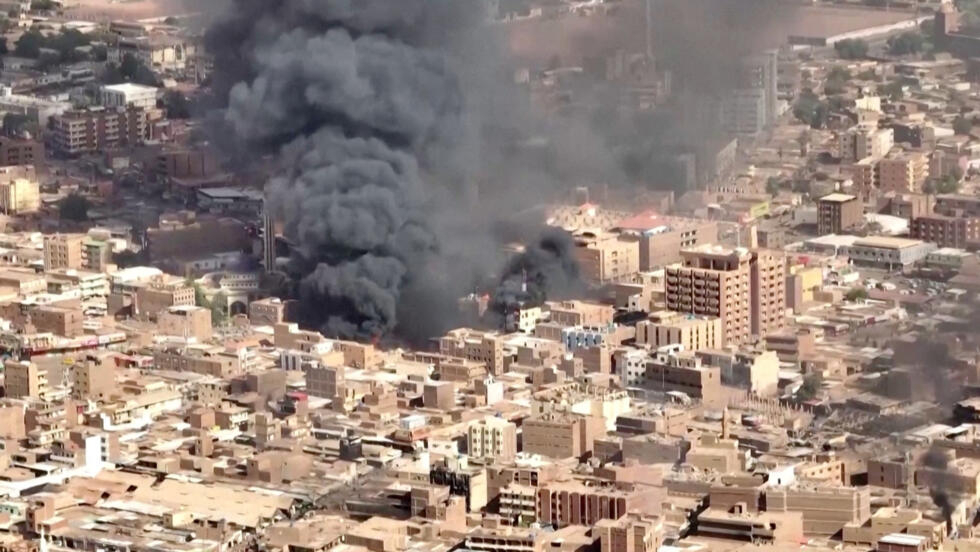Tuesday saw a string of fatal bombings by Sudanese jets over the Darfur region and central Sudan, killing hundreds of civilians and inciting the paramilitary Rapid Support Forces (RSF) to shell retaliatory targets.
Al-Daien, Al-Fasher, and Al-Tawisha in Darfur as well as Al-Hasaheisa in Al-Jazirah state were the targets of the airstrikes. Al-Daien, the RSF bastion and the historical capital of the Rizeigat tribe, took a particularly heavy toll.
At least 15 people were killed and numerous others were injured in the attack on Al-Daien’s teaching hospital and a displacement center.
On the ground, journalists and activists documented extensive damage and the deaths of civilians, and also presented video evidence of the aftermath of barrel bomb raids. Regarding the airstrikes, the Sudanese military has remained silent.
The RSF conducted artillery attacks on residential areas in Al-Fasher, the state capital of North Darfur, in retaliation for the aerial bombardment. The region’s growing humanitarian catastrophe was exacerbated by the bombardment, which resulted in additional fatalities and injuries.
Millions of people have been displaced and thousands of people have died as a result of the army and RSF combat in Sudan, which started in April. Following a catastrophic battle in the early 2000s, there has been a revival of violence in Darfur, where there have been numerous reports of atrocities against civilians.
Although calls for a truce and condemnation of the violence have come from throughout the globe, attempts to mediate a sustainable settlement have not succeeded thus far. The most recent airstrikes and counterattack shelling highlight how quickly the crisis needs to be resolved and how the nation’s security is deteriorating.
Burhan of Sudan seizes control of border crossings in the midst of a humanitarian rush
The Sovereignty Council was given authority over Sudan’s border crossings on Tuesday by military chief Abdel Fattah Al-Burhan, in an effort to expedite the delivery of humanitarian aid amidst the ongoing fighting.
The choice is being made as Sudan is ready to open a number of border crossings to let aid reach those impacted by the war. The opening of the Adré crossing into Chad was recently allowed by Al-Burhan in response to the terrible humanitarian situation in Darfur.
The action was taken to “facilitate procedures across border crossings, ensure smooth commercial movement, and speed up the clearance of goods,” according to a statement from the Sovereignty Council.
The Ministry of Transport currently has control over land and marine crossings in Sudan. Its borders are shared by the Central African Republic, Ethiopia, Eritrea, South Sudan, Egypt, Libya, and Chad.

